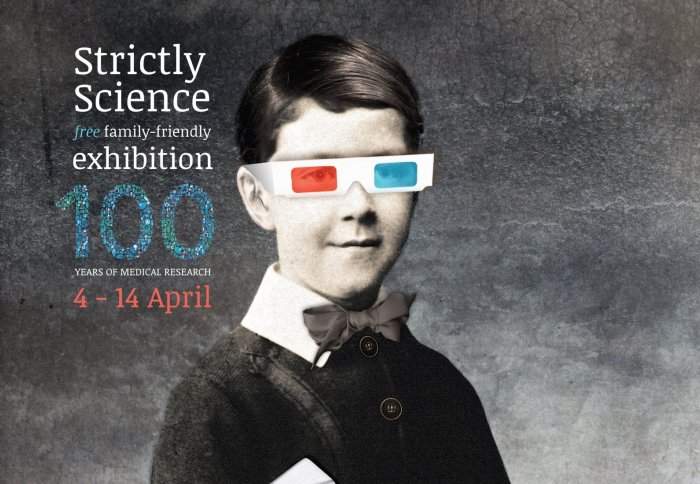Medical Research Council centenary celebrations come to Imperial
by Kerry Noble

A free interactive exhibition at Imperial College London celebrates a century of progress led by the Medical Research Council.
Running from 4 to 14 April at Imperial’s Main Entrance on Exhibition Road, Strictly Science contrasts scientific endeavors in 1913 with those today, and invites visitors to speculate on the next 100 years.
The MRC is a national organisation funded by the UK taxpayer and dedicated to improving human health. Its origins can be traced back to 1911, when Parliament passed the National Insurance Act, introduced to help helped tackle an epidemic of tuberculosis.
Strictly Science features a series of interactive installations across three main zones where members of the public, young and old, can explore past and current achievements of the MRC and speculate on the future of medical science.
A century-old laboratory installation reenacts experiments on the nervous system, war-wound treatment and vitamin-deficiency disease. A contemporary neurotechnology lab invites visitors to play with interactive experimental tools – Wii balance boards, eye-trackers, and a motion capture suit – used by Imperial College London’s Dr Aldo Faisal to investigate how the human brain works.
Dr Aldo Faisal, from the Departments of Bioengineering and Computing, was also recently appointed associate Group Head at the MRC Clinical Sciences. He says:
“Our work focuses on the rapidly growing area of Neurotechnology, which is a field of science that fuses technology and neuroscience. Ultimately, we want to understand how the brain works when it is healthy, so that we can develop technological solutions to help patients with neurological disorders to function more effectively in their day-to-day lives. This exhibition gives us the opportunity to talk to visitors about the work that my colleagues and I do and lets the public experience our neurotechnology hand's on. It also gives us an opportunity to celebrate the fantastic work that the MRC does, reflect on its history and imagine about future of things to come.”
A sound installation explores our hopes and fears for the next century. Featuring opinions from Melvyn Bragg, Susan Greenfield, Jon Snow, Robert Winston and many more, alongside those of UK primary school children, the exhibit asks ‘What will the world be like in 2113’? Future booths invite visitors to share their views and contribute to a growing archive of future perspectives.
Brona McVittie, Strictly Science Exhibition Manager said: “Strictly Science not only celebrates 100 years of progress in medical research, but accentuates how knowledge gained through basic research shapes our life in general, from culture and commerce to politics."
Exhibition opening hours
Strictly Science details will be open 10.00-18.00 daily from 4 to 14 April 2013 at Imperial College London, Exhibition Road, London SW7 2AZ.
Article supporters
Article text (excluding photos or graphics) © Imperial College London.
Photos and graphics subject to third party copyright used with permission or © Imperial College London.
Reporter
Kerry Noble
Department of Surgery & Cancer